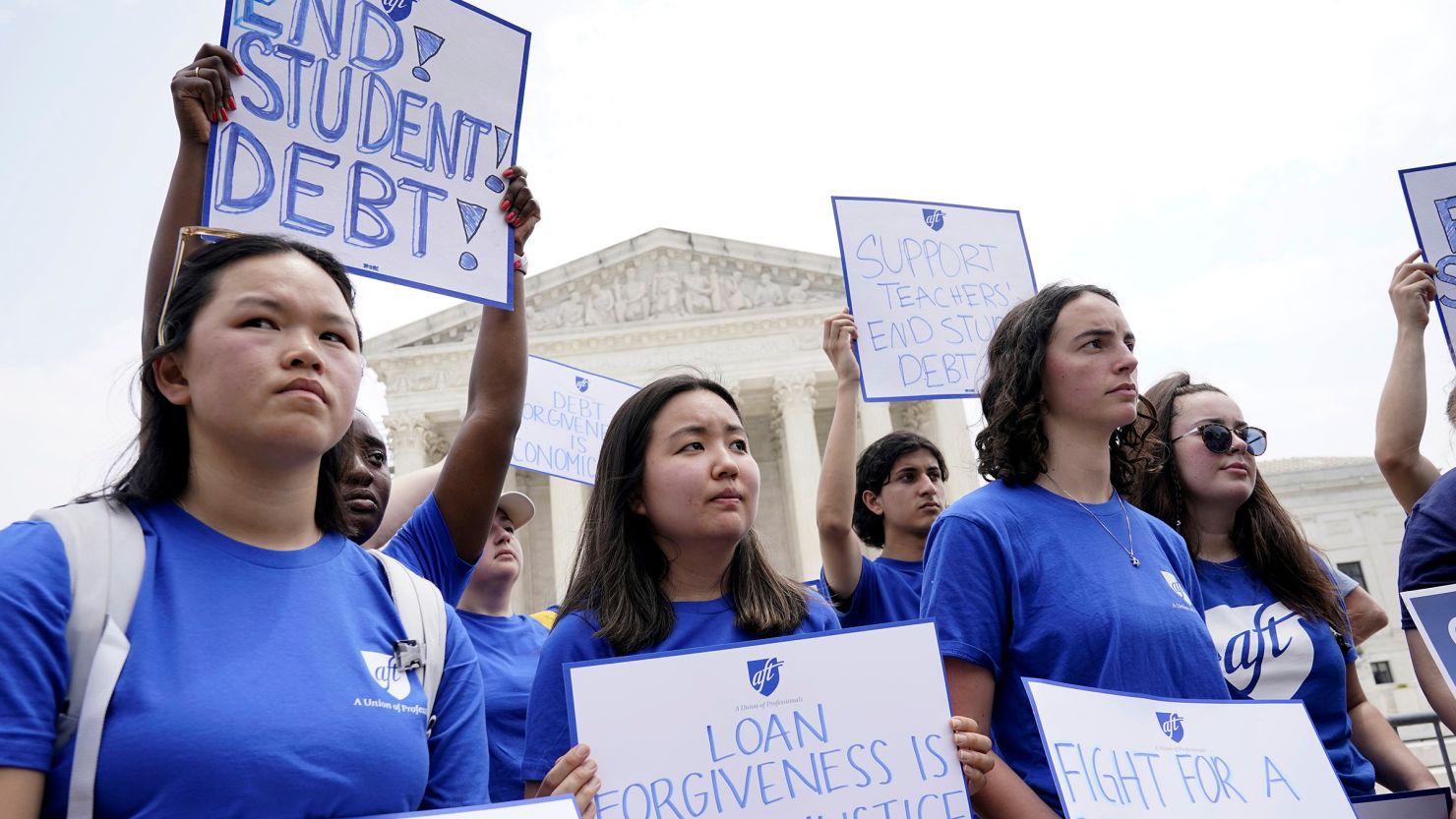
Dive into the latest developments regarding student loan forgiveness under the Biden administration. Discover how proposed measures aim to alleviate the burden of student debt for millions of borrowers, addressing key concerns raised by recent legal challenges.
According to two people familiar with the preparations, the Biden administration is drafting fresh measures to lower or eliminate the debt associated with student loans for millions of borrowers. This is an additional effort to address a significant concern that voters will be confronting prior to November’s election.
The anticipated plans follow the Supreme Court’s almost 10-month-old invalidation of President Joe Biden’s initial student loan forgiveness scheme, which sought to provide millions of borrowers who were suffering with outstanding debt with relief of up to $20,000. The president promised at the time to use a separate legal authority to pursue a different strategy for student assistance.
Soon after, the Higher Education Act of 1965 gave the Department of Education new legal authority and caused it to follow a different course. The new ideas, which outline particular borrower groups who may be eligible for student debt cancellation, are probably going to be more focused than the old program was.
According to one of the individuals, the administration hopes to reduce student loan debt for borrowers who face everyday hardships that would make it impossible for them to repay their loans through the anticipated new recommendations, which were initially reported by The Wall Street Journal. According to that source, it will also lessen the load for borrowers whose interest has accumulated dramatically over time.
The sources stated that the president is anticipated to present the new plans on Monday, which also happens to be his day of travel to Madison, Wisconsin, to talk about bringing down expenses for Americans.
Once a proposed rule is announced, it could still take quite some time to go into effect. The proposal would need to go through a public comment period before the administration could issue the final rule.
However, one of the individuals warned that the timeline is still subject to change and that it is possible that some of the new restrictions might start to be enforced as early as this fall.
Even though the new student loan forgiveness program is based on a different statute than the one that the Supreme Court overturned, if the Biden administration is sued once more, it may still have to endure protracted legal disputes.
Regarding the recent steps, the White House chose not to comment.
The Department of Education had to go through a formal rulemaking procedure known as “negotiated rulemaking” since the administration took a different approach in creating these new recommendations.
A committee of external negotiators comprising representatives from student loan servicers, schools, and borrowers has met multiple times since October to go over the plans and offer feedback on the regulation language.
Negotiators discussed include a number of borrower categories in the new program’s eligibility for debt relief, such as those who:
The president may experience a political shock from the new measures because a large number of young voters and borrowers are still struggling financially as a result of their large student loan debt. According to a recent KFF poll, 32% of registered voters believe that student loan debt is “very important” for presidential candidates to discuss. Yet 46% of younger voters—those between the ages of 18 and 29—say it’s crucial.
After his student loan debt forgiveness scheme was overturned by the Supreme Court, Biden has taken further steps to offer relief. Under his administration, qualifying for current programs for student loan debt forgiveness has been simpler for certain types of borrowers, like as teachers and other public sector workers, persons with disabilities, and those who were scammed by for-profit colleges.
Under Biden, over 4 million people had their federal student loans canceled, for a total of about $144 billion. Even though that’s greater debt relief than any administration before it, it only accounts for around one-third of the total debt that would have been erased had the Supreme Court’s student loan forgiveness scheme been approved.
Conclusion
The ongoing efforts by the Biden administration reflect a significant push for student loan forgiveness, although challenges remain due to legal hurdles. As discussions continue and proposals are reviewed, the impact on borrowers and the broader education landscape remains a key focus, highlighting the importance of addressing student debt in today’s economic climate.
Connect with us for the Latest, Current, and Breaking News news updates and videos from thefoxdaily.com. The most recent news in the United States, around the world , in business, opinion, technology, politics, and sports, follow Thefoxdaily on X, Facebook, and Instagram .
